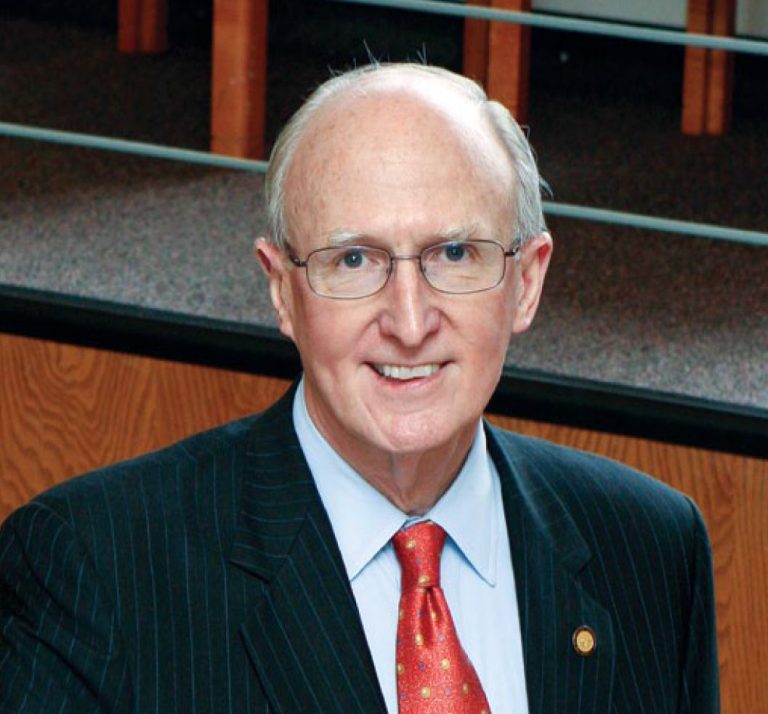
By Robert A. Scott, President Emeritus, Adelphi University and Ramapo College of New Jersey
For many students, being at college, even part-time, is the first time they experience real freedom. Living at home or not, they are less likely to have someone to remind them of homework.
If they live on campus, or in an off-campus apartment, students have the freedom to associate with whomever they wish, skip meals, and otherwise experiment with their new independence.
They can sleep in late, skip class, and play pool instead of studying Physics. Many have no one to urge them to pick up their clothes (other than a fussy roommate); no one to say, “Eat your breakfast” or “Stand tall,” and other admonitions such as “Be home by midnight.”
However, with freedom comes responsibility. Students are responsible for keeping up with assignments and requirements, class attendance, and part-time jobs.
They learn they should not take five History courses at once, given the requirements for reading and writing and the need to fulfill other requirements. They need to know how to account for Advanced Placement credit. Students also owe it to parents and family members to stay in touch, often giving a brief report on knowledge gained and lessons learned.
One responsibility is to take full advantage of the opportunities offered by college, even if the student lives at home. Colleges are generally more diverse in demographic characteristics than the high schools from which students graduated.
They can meet people from new parts of their state and country and from other parts of the world. Colleges also sponsor internships, study abroad, and other experiences in different cultures.
Most campuses provide opportunities for volunteering in low-income neighborhoods and multicultural regions so that students can experience how to “do good” while also developing skills and abilities. They can learn what it is like to be the “other.”
It is incumbent upon students to take advantage of their environment and expand their horizons.
An often-overlooked opportunity is getting to know faculty and staff as individuals, not just as authority figures. Most became educators because they care about learning and nurturing younger learners.
Many had an influential mentor in their lives. The stories of their professional journeys can be instructive as well as inspiring. Ask them how they got “to here from there.”
The college years also are a time to develop the habits of citizenship: being informed, being involved in a community; learning to disagree without being disagreeable; promoting the common good; assessing the accuracy of information; rejecting violence; valuing the norms of democracy, such as voting and the transfer of power between administrations; and knowing what patriotism means.
These, too, are important lessons, whether learned in or out of class.
Much attention is given to learning specialized knowledge in a major course of study and being introduced to a broader survey of subjects through general education requirements. However, college also is a time to develop the skills of writing and speaking as well as the abilities of reasoning and leadership.
It is in college that we can foster the development of values such as teamwork, fair play, and respect for others.
One of the most important lessons in college is to reflect: reflect on a course, or an incident, or a ceremony, or a lecture. Students learn to ask, “What did this mean?” “What did I learn from this?” “Why is this important?” “How does this relate to or reflect on a historic issue or incident in politics or literature?”
College students learn about themselves through reflection as well as instruction. This includes finding the optimal environment for challenge and comfort. We want college to be challenging so that we can improve in our skills and abilities. We also want it to be a safe environment in which people care about student success.
Many students also learn non-academic skills that can last a lifetime, such as tennis or chess. They also develop life-long habits of reading the news and reading for fun. They learn the value of time management and that it makes sense to ask for help. They master the value of work by seeking a job on campus where they are more likely to be supervised by people who care about their education and progress as students.
Equally important, they should master their finances, learn how to balance a checkbook and understand the implications of debt. The financial aid office staff can be helpful even if you do not have institutional grants and loans. They know higher education finance and want students to be secure. They want them to succeed and graduate.
Many students become involved in student government and get to know the student affairs staff. Those who live on campus can get know the Residence Life staff. These are important guides to the college experience, what to avoid and what to emphasize. In my experience, these staff are most helpful in discussing the management of relationships, an important life-long responsibility.
College also is a safe space to learn the value of taking action. This may take the form of protest about a college policy, visiting the president to voice objection to an action, or lack of action, by the board of trustees, or writing letters to newspapers and local officials advocating a carefully thought-out position on public policy.
Issues such as the Sustainable Development Goals of the United Nations, climate change, racial justice, access to affordable housing, good nutrition, and adequate schools locally as well as globally motivate students to be informed and involved.
Students also join or create political campaigns for candidates and policy positions. This is a time of personal growth and becoming an independent person.
The college experience in a precious one, whether one lives at home and commutes or lives on campus. It helps us develop as individuals who learn how to manage freedom with responsibility.
Robert A. Scott is president emeritus of Adelphi University and Ramapo College of New Jersey






